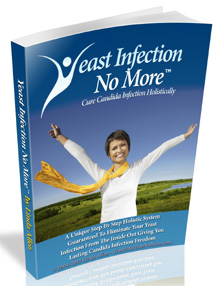Why Do You Get Chronic Yeast Infections?
Free Video Reveals 1 Weird Tip To Quickly Cure Your Candida Overgrowth & Enjoy Permanent Freedom From Yeast Infections In As Little As 12 Hours - Guaranteed!
>> Yeast Infection Guaranteed Treatment Click Here <<
Unfortunately, chronic yeast infections are not uncommon, and they can cause a great deal of discomfort to the unlucky people who experience them. Almost all symptoms of yeast infections are caused by Candida albicans yeast.
Candida can cause a rash or infection just about anywhere on the body, although vaginal yeast infections and oral thrush are probably the most common. When yeast becomes infectious it can cause pain, itching, redness, swelling, and, if located on the genitals, it can cause a vaginal discharge.
Although Candida does make you itch and hurt on occasion, yeast does not actually ?cause? yeast infections. The symptoms are simply an indication that something else has gone wrong somewhere in your system. As soon as your body?s natural balance is restored, the yeast will lose its ability to cause the common symptoms of an infection, and your life goes back to normal.
If you have chronic yeast infections, it?s important to find out what?s causing them. Unfortunately, there are at least 17 different environmental and health conditions that can trigger yeast infections, so it is sometimes necessary to take a careful look at everything that could be causing the problems, and then eliminate them.
Many women get a yeast infection every time they need to take antibiotics. If their immune system is working properly, the yeast infection should be fairly easy to get rid of.
However, a number of things can cause either the immune system or the hormone system to be slightly out of balance, and this can bring on chronic yeast infections. This can be caused by a number of things, including the use of birth control pills, pregnancy, stress, corticosteroid medications, and some serious underlying illnesses such as diabetes and AIDS.
The first thing you should do if yeast infections keep coming back is to make an appointment with your doctor. It is vitally important that you find out for sure that your symptoms are really caused by yeast. Other organisms, such as bacteria and parasites, have very similar symptoms but they can be far more destructive. Since at least 2 out of 3 women misdiagnose their symptoms and attempt to treat a ?yeast infection? when they actually have a condition caused by something else, a diagnosis really is important.
If your symptoms are yeast-related, and they keep coming back, ask your doctor for a thorough exam.
If you get a clean bill of health, and you are not taking any medication that is altering your hormone balance or lowering your immune response, it may be time to take a look around your house to see if there?s anything that could be irritating your delicate membranes, such as perfumed or colored toilet papers, and harsh laundry detergents or bath soaps.
If you have skin infections, try using a non-medicated absorbent powder to keep the area dry. And, as you?ve read many places before, don?t wear tight clothing that won?t allow your skin to breathe and dry out.
In almost all cases, if the chronic yeast infections are not caused by an underlying illness, a few simple changes in diet or daily habits will keep the infections from coming back. But you may need to become a ?private? detective to find out the exact cause of your infections.
There are over 17 different things that can cause chronic yeast infections. To learn more and sign up for a free 7 page report, visit http://www.YourYeastInfection.com
Labels: pregnant_yeast_infection, untreated_yeast_infection, yeast_infection_cream, yeast_infection_medicin, yeast_infection_prevention

